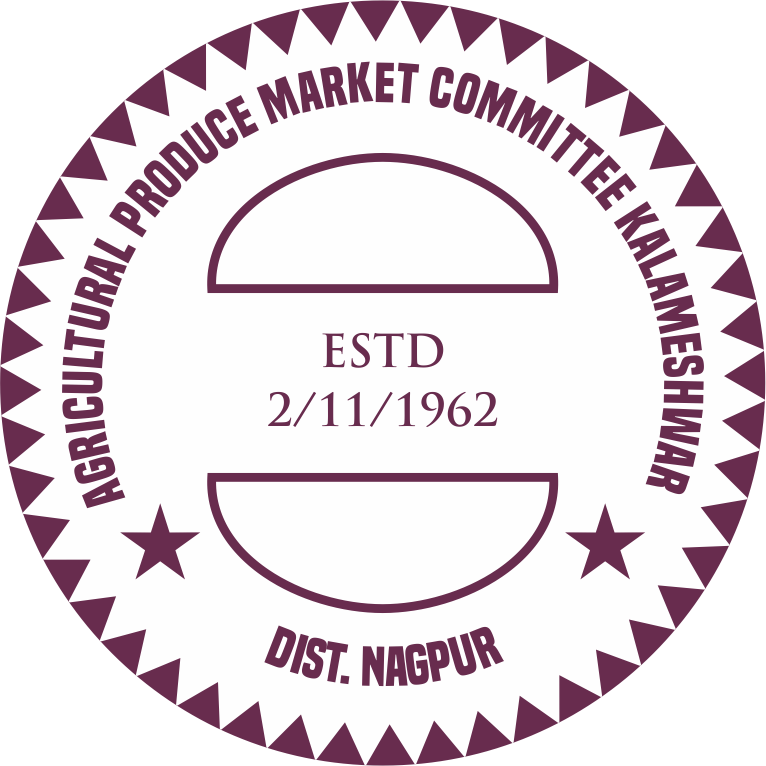In the year 1898, legal Cotton Market Committees were established. In 1935, amendments were made to the Market Act. The most important amendment in the Market Act was granting representation to farmers in the Market Committee. In 1935, farmers got representation. In the same year, the Taluka Cooperative Purchase and Sale Society was established, and farmer representatives began to emerge as leaders.
With the initiative of Sahakar Maharshi Babasaheb Kedar, the Kalameshwar Agricultural Produce Market Committee was established on 02/11/1962. As per the Maharashtra State Agricultural Produce Purchase and Sale (Development and Regulation) Act, 1963, the committee started its actual functioning on 26/09/1969 under the guidance of Sahakar Maharshi Babasaheb Kedar. The committee has now completed 63 years. The first chairman was Mahavirprasad Amgaonkar, a farmers’ representative, who brought the main crop Oranges under the regulation of the committee, and that marked the beginning of the committee’s income. Later, leaders like Chandrashekhar Deshmukh, Madhavrao Suke, Sudhakarrao Dhote (Acting Chairman), Rameshrao Fulare, Arvindji Ramawat, Anilji Dangore, Gunwant Rao Nagpure, and since 2015 till the present, Mr. Babarav K. Patil has been working as the chairman. Under regulation, the committee has included crops like Rice, Wheat, Jowar, Green Gram, Chickpeas, Black Gram, Bajra, Soybean, Linseed, Sesame, Groundnut, Beans, Castor, Ambadi, Paddy, Cotton, Chilies, Tamarind, Mustard, Oranges, Mangoes, Sweet Lime, Banana, Apples, Grapes, and other fruits, Potatoes, Onions, Garlic, Ginger, Yam, Tomato, Kokum, and leafy vegetables. Regular agricultural trading activities have started in all main and sub-markets.
With the valuable guidance of former Minister and People’s Leader Sunilbabu Kedar, the current chairman Mr. Babarav K. Patil has taken Kalameshwar Market Committee on the path of progress and elevated it from Class B Market Committee to Class A Market Committee. During the COVID-19 pandemic, the committee provided financial assistance to the families of farmers who died due to COVID. In case of bollworm infestation on cotton, farmers were guided and pheromone traps were distributed. If a farmer or a bull died due to an accident or snakebite, financial assistance was given. The market committee management has been working in a very disciplined manner, and the decisions taken in the interest of farmers are truly commendable. In 2005, the Central and State Governments amended this Act with the objective of freeing farmers from middlemen and the rigid framework of the Market Act by making necessary provisions. The government’s purpose behind this was said to be in the interest of farmers. Perhaps this could be the beginning of a new system of agricultural marketing. Only time will tell what benefits these new provisions will bring to the farmers. However, the Market Committee has always prioritized farmers’ welfare, and by facing upcoming changes, it will certainly strive to safeguard the interests of farmers.

